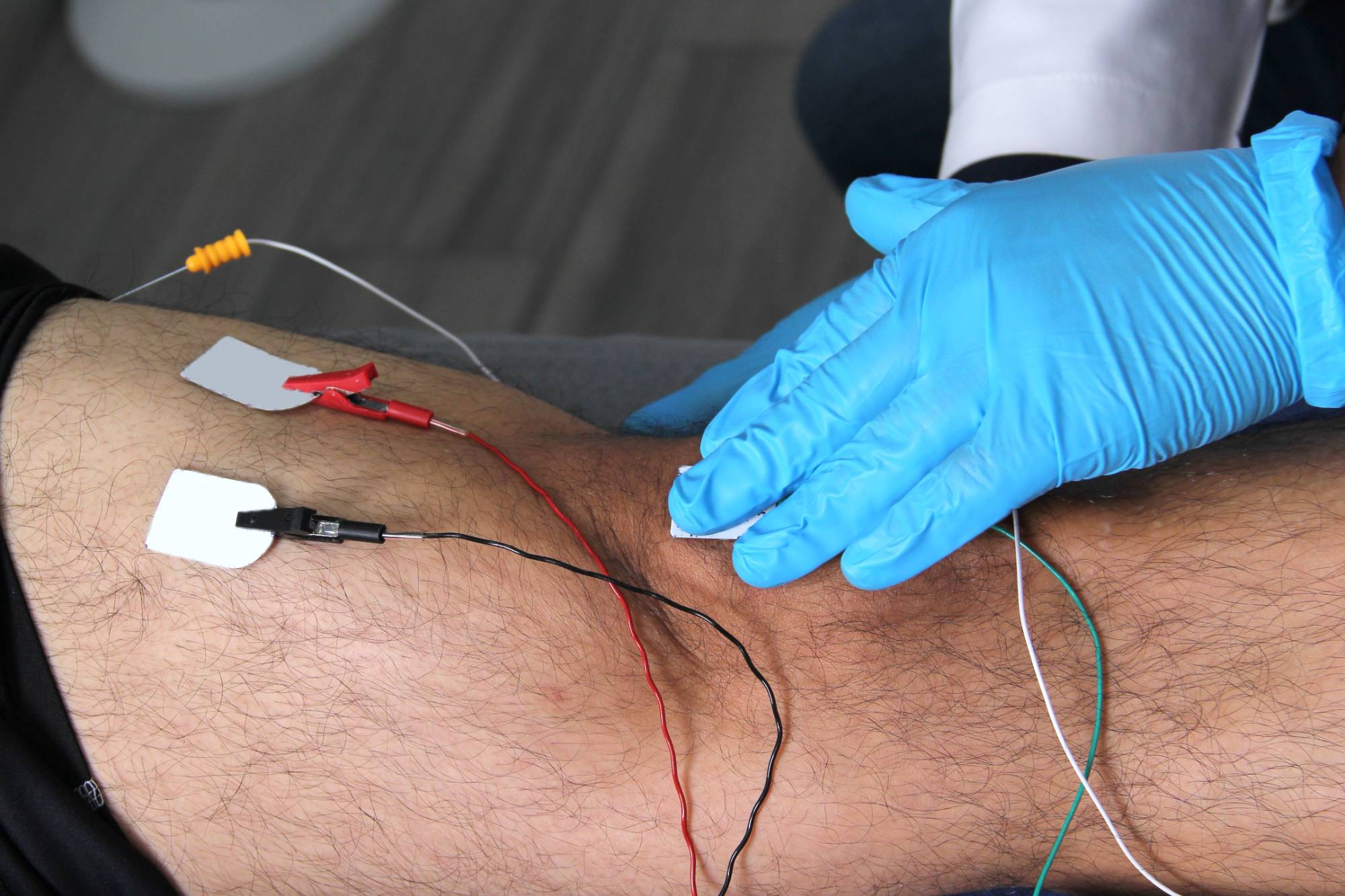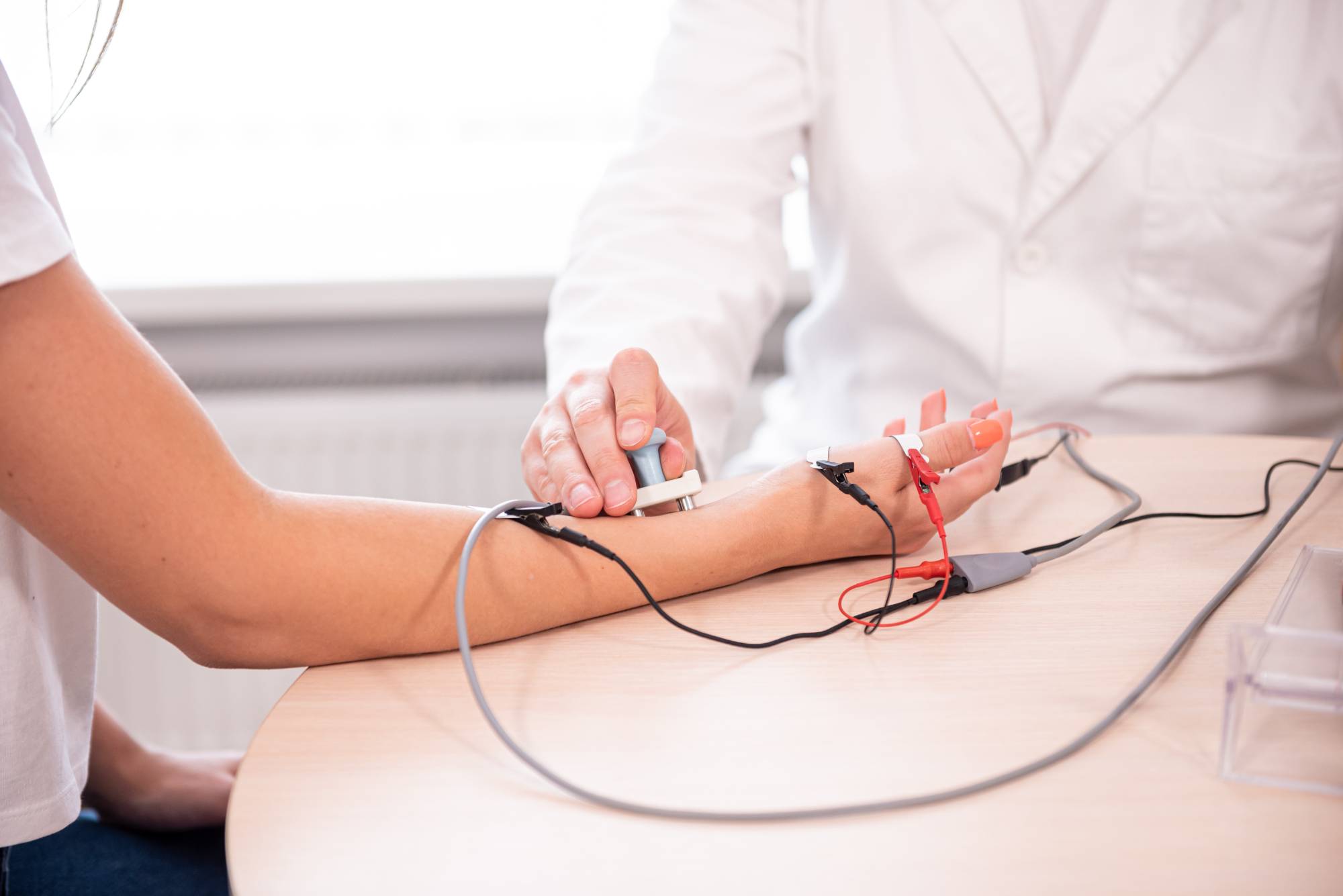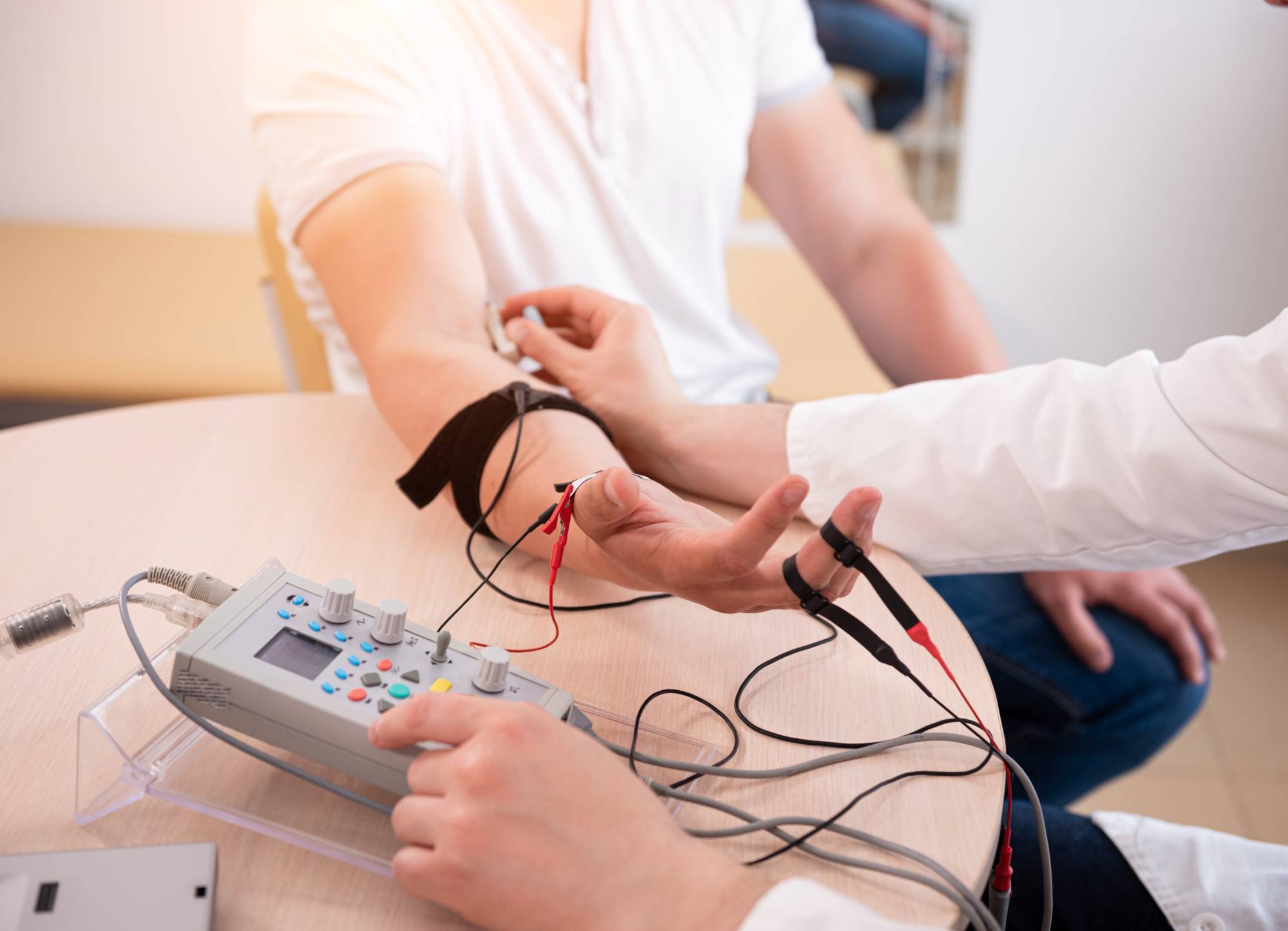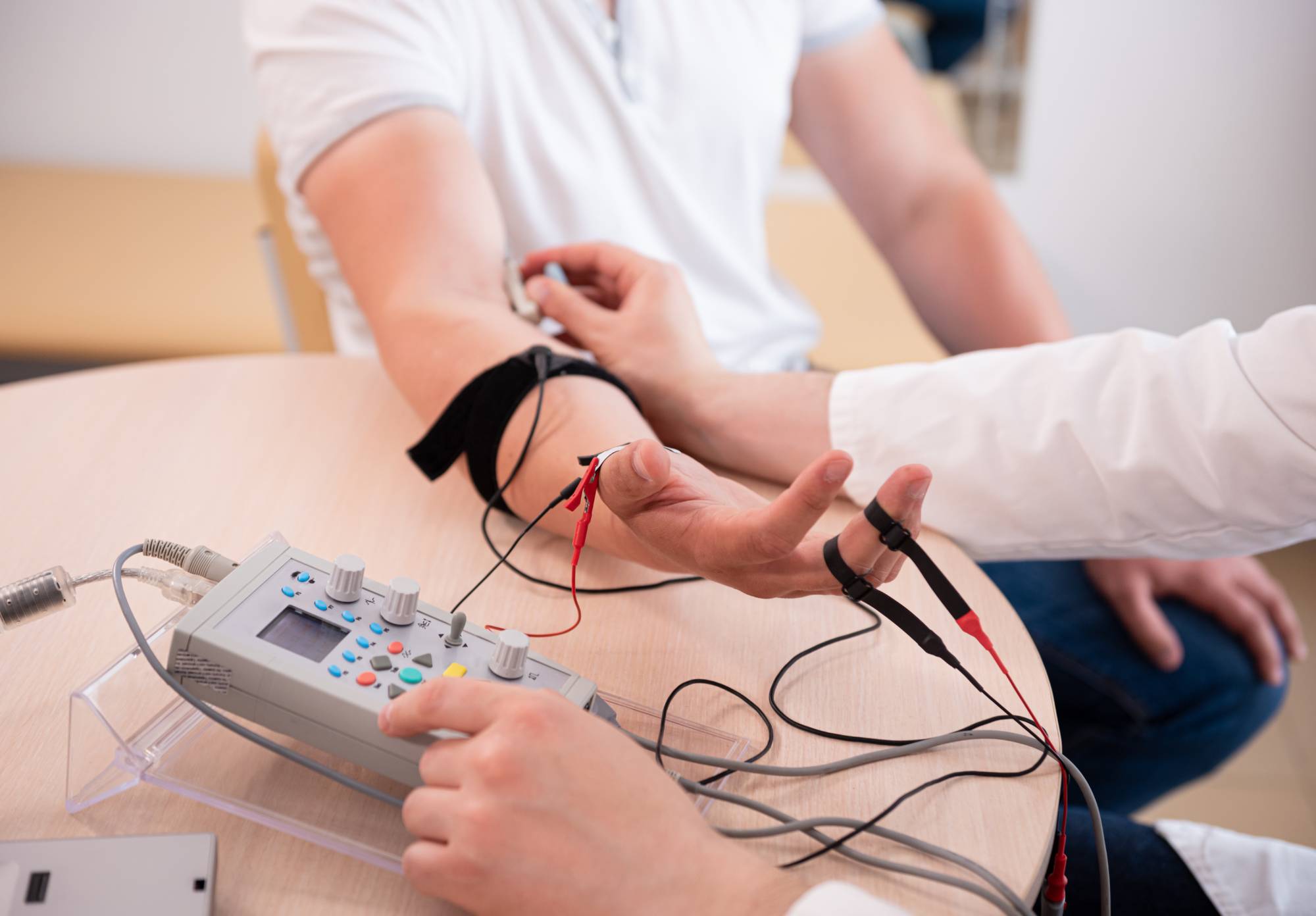Advanced electromyography testing that pinpoints nerve and muscle problems with same-day results and expert consultation.

Reviews

You’ve been dealing with numbness, tingling, or muscle weakness for weeks or months. Your primary care doctor suspects a nerve problem, but you need definitive answers. EMG testing gives you exactly that—clear, precise information about what’s happening with your nerves and muscles.
Our electromyography and nerve conduction studies can identify conditions like carpal tunnel syndrome, sciatica, diabetic neuropathy, and muscle disorders that other tests might miss. You’ll walk out knowing whether your symptoms stem from nerve compression, muscle disease, or another treatable condition.
Most patients tell us the relief of finally having answers outweighs any brief discomfort during testing. You’ll get your results immediately, along with a clear explanation of what they mean and what treatment options make sense for your specific situation.
NY Spine Medicine has been providing comprehensive neurological and spine care to Shore Acres and surrounding communities for years. Our team includes board-certified specialists who perform hundreds of EMG tests annually, giving us the experience to spot subtle findings that less experienced providers might miss.
We use advanced electromyography equipment and follow strict protocols to ensure accurate, reliable results. Most importantly, we take time to explain your results in plain language, so you understand exactly what’s happening and what your next steps should be.
Your referring physician receives a detailed report within 24 hours, ensuring your care team stays coordinated and your treatment plan moves forward without delays.

Your EMG test starts with a consultation about your symptoms and medical history. We explain the procedure and answer any questions before beginning. The test has two parts: nerve conduction studies and electromyography.
During nerve conduction testing, small electrodes are placed on your skin over specific nerves. Mild electrical pulses measure how quickly and effectively your nerves transmit signals. This part feels like brief static shocks—uncomfortable for a moment, but not painful.
The electromyography portion uses a thin needle electrode to measure electrical activity in your muscles. You’ll contract specific muscles while we listen to and record the electrical patterns. Most patients describe it as similar to getting blood drawn, with brief pinching sensations.
The entire process typically takes 30-60 minutes depending on which nerves and muscles need testing. You’ll receive your results immediately, along with a thorough explanation of what the findings mean for your condition and treatment options.

Ready to get started?
Your EMG testing includes both nerve conduction studies and electromyography to give a complete picture of your neuromuscular system. We test specific nerves and muscles based on your symptoms, ensuring nothing gets overlooked.
You’ll receive immediate results interpretation from a board-certified specialist, not a technician. This means you get expert analysis of your findings right away, along with clear explanations about what they mean for your condition. We discuss treatment options, prognosis, and next steps before you leave.
Shore Acres patients appreciate our comprehensive approach—you’re not just getting a test, you’re getting answers. We coordinate directly with your referring physician and can provide referrals to appropriate specialists if your condition requires additional treatment. Most insurance plans cover EMG testing when medically necessary, and our staff handles prior authorizations and claims filing.

New York:
Florida:
Support